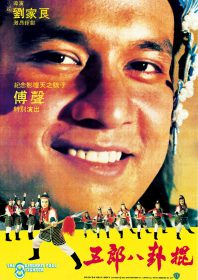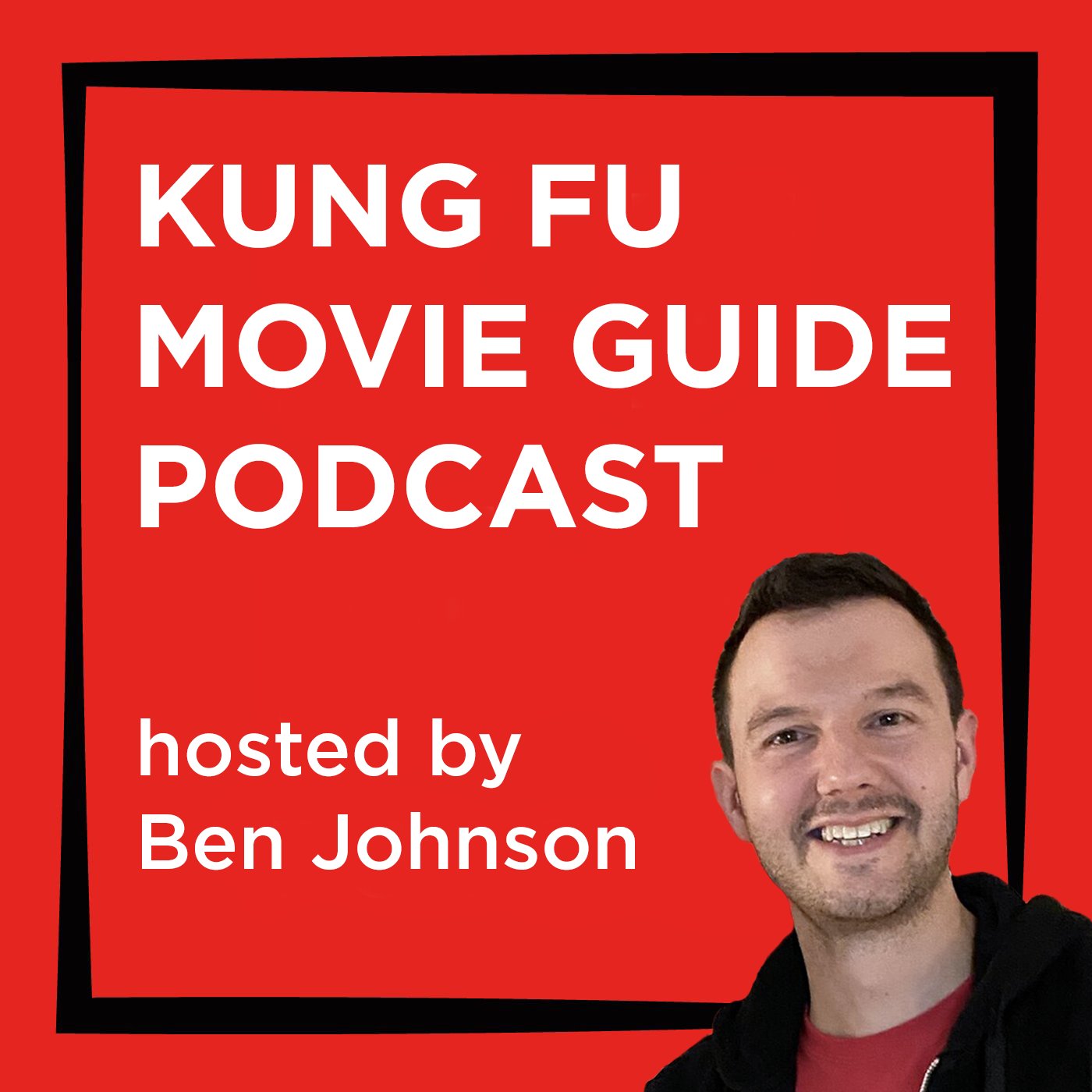
A near-perfect kung fu film, this wrought, embittered battle for justice is very much the zenith of Lau Kar-leung‘s extraordinary filmmaking talents, and pushes the form into new realms. It tells the story of the noble, pious, pole-fighting Yang family soldiers; they have the respect of the people, but are seen as a menace to the governing Mongol government who see them as a threat to their plans for wide-scale invasion. An ambush is set-up by the traitorous Pai Mei and five of the seven Yang family brothers are slain, causing their master to take his own life. They die standing up; defiant to the very end. The two surviving brothers – fifth and sixth brother – are left traumatised from the event. Sixth brother (Alexander Fu Sheng) is driven insane by the experience, protected by his highly influential, newly widowed mother and his two sisters. Fifth brother (Gordon Liu), instead, deals with his trauma by taking a more spiritual route, absconding to a Buddhist temple and becoming a monk. The abbott and the teachers are skeptical about the political ramifications of harbouring a wanted man, as well as training a soldier with a fatalistic temperament. “How can we teach him how to fight if he wants to kill?” asks one of the monks. As a result, fifth brother is respected but never fully embraced by the monks; he symbolically shaves and brands his own head, and ultimately displays his devotion by fighting to avenge the abbot after an attack.
It is impossible to judge this film subjectivity without taking into account its troubled production. It is a film forged in grief. The tragic death of its 28-year-old star, Alexander Fu Sheng, in a car crash mid-way through production hangs over the latter half of the film like a spectre, with Lau having to redraft the script after a brief hiatus, and a visibly affected cast having to finish the film without their close friend and colleague. For Lau, to lose such an enigmatic and trusted muse at a time when the two were rekindling their working partnership must have seemed like a double tragedy for the filmmaker, with Lau seemingly channelling much of this anger into the final product. Gordon Liu’s vengeful retribution killing of the traitorous Prince Yeh (Wang Lung-wei) and his Mongol hoards is depicted in a circle of stacked coffins, where he is joined by Phillip Ko and his brotherhood of monks who forgo their piety and neutrality in support of the fight against tyranny and deception. There is no happy reunion; Gordon Liu’s resolution is to shun his home and what remains of his family to live out his life in isolation, devoted only to god. The film’s emotional resonance is only confounded by the fact that, in 1986, Shaw Brothers would decide to dismantle its long-running filmmaking enterprise to concentrate solely on television, forcing Lau and many others out of a job. This would prove to be Lau’s final film for Shaw Brothers, and as swan-songs go, they don’t get more powerful than this.
AKA: The 8 Diagram Pole Fighter; Invincible Pole Fighters.
- Country: Hong Kong
- Action Director: Hsiao Ho, King Lee King-chu, Lau Kar-leung
- Directed by: Lau Kar-leung
- Starring: Alexander Fu Sheng, Gordon Liu Chia-hui, Johnny Wang Lung-wei, Kara Hui Ying-hung, King Lee King-chu, Lam Hak-ming, Lily Li Li-li, Phillip Ko Fei
- Produced by: Mona Fong Yat-wa
- Written by: Lau Kar-leung, Ni Kuang
- Studio: Shaw Brothers












